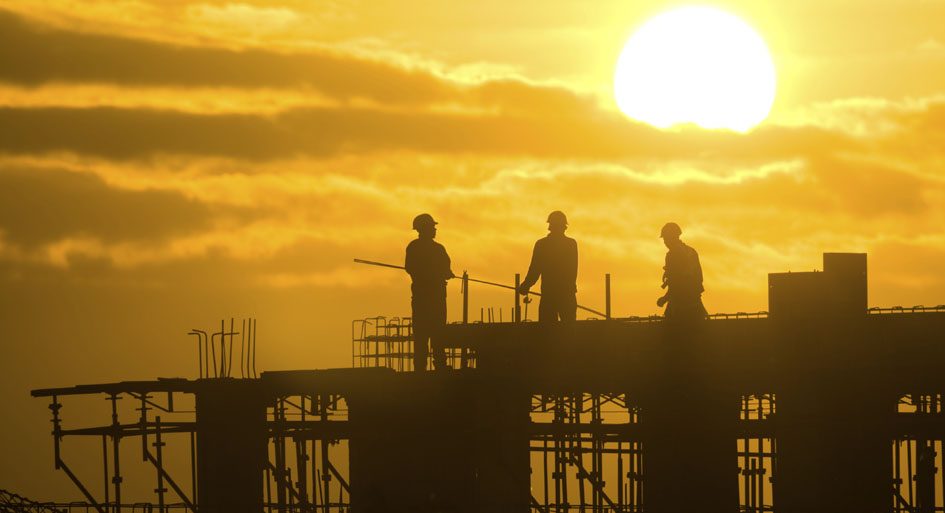Multi-residential construction costs are rising in Canada due to the pandemic’s far-reaching impact on everything from labour and material costs to shifting supply and demand dynamics. According to new research from Altus Group, housing developers in the Greater Toronto Area will likely feel the greatest strain with overall costs associated with construction projected to rise by 5 per cent by the end of the year. Meanwhile, other Canadian markets will see slightly lower cost increases ranging from 1 to 4 per cent.
“The pandemic has impacted many factors that contribute to construction costs,” observes David Schoonjans, Senior Director, Cost & Project Management at Altus Group. “Labour productivity has suffered due to physical distancing requirements and workflow interruptions, with the reduced productivity resulting in more labour hours and thus higher labour costs.”
In terms of material costs, Schoonjans says COVID-19 restrictions are continuing to disrupt global supply chains, causing some material costs to escalate. Shifting patterns of demand have also contributed to shortages and increased costs. As an example, he points to the heightened lumber demand we’ve seen throughout 2020 and 2021 fuelled by the shift to single-family home construction and rampant home improvement projects—a trend that continues to exacerbate supply as lockdown measures persist. In fact, a recent report from RE/MAX reveals that more than half of Canadians renovated their homes in 2020 to enhance their lifestyle during lockdown, or to increase its market value for the purpose of sale.
Regardless, the culminating reality is that multi-residential housing developers are faced with additional hurdles and prohibitive costs at a time when the need for affordable rental housing is more urgent than ever. If anything, the pandemic has put a spotlight on the continued (and growing) necessity for quality housing to meet the demand.
“Even in the best of times, managing construction cost is a challenge and cost escalation an ever-present concern,” Schoonjans says. “With the addition of pandemic-fuelled cost escalation, the challenge of managing construction cost has become even more difficult and much less predictable. This is likely to continue to be the case until the pandemic is under control, disruptions to supply chains have passed, and supply and demand imbalances have been negated.”
Robust demand, strained resources
For the past several years, multifamily residential in the Greater Toronto Area has experienced a higher rate of construction cost escalation than any other city in Canada. With its persistent housing shortage, and immigration numbers that are likely to recover as soon as pandemic restrictions are lifted, Schoonjans says there is little chance the market will see a significant change in this cost trend for the next several years.
“Even if new condo sales were to drastically decline—which seems unlikely—it would still take years to complete the glut of projects already under construction and those soon to break ground and thus free up capacity,” he says. “And even once pandemic-related cost escalation has subsided, the GTA will still be dealing with robust demand and strained resources for the next several years.”
Multi-residential construction in other markets
According to Altus Group’s research, Vancouver construction costs will likely increase by 3 per cent by the end of the year before falling back to approximately 2 per cent by 2023 given the pace of construction in Q1.
Similarly, Calgary and Edmonton construction costs will likely increase between 2 and 3 per cent by year’s end, where it will remain steady through 2023. In these cities, Altus Group says cost increases will be supported by the ongoing construction of some of the mega projects underway including the BMO Centre expansion, the new Calgary Event Centre (arena), the new Green Line public transit project in Calgary, and the South Edmonton Hospital and Blatchford Metro Line Extension in Edmonton.
In Ottawa and Montreal, the group expects overall construction costs to increase between 3 and 4 per cent for the year, with an estimated range between 2 to 5 per cent that may moderate somewhat by 2023. In Halifax, overall construction costs will likely increase between 2 to 3 per cent where it will remain for the next two years.
For more information on multi-residential construction costs in Canada, and other real estate data, please visit www.altusgroup.com.







